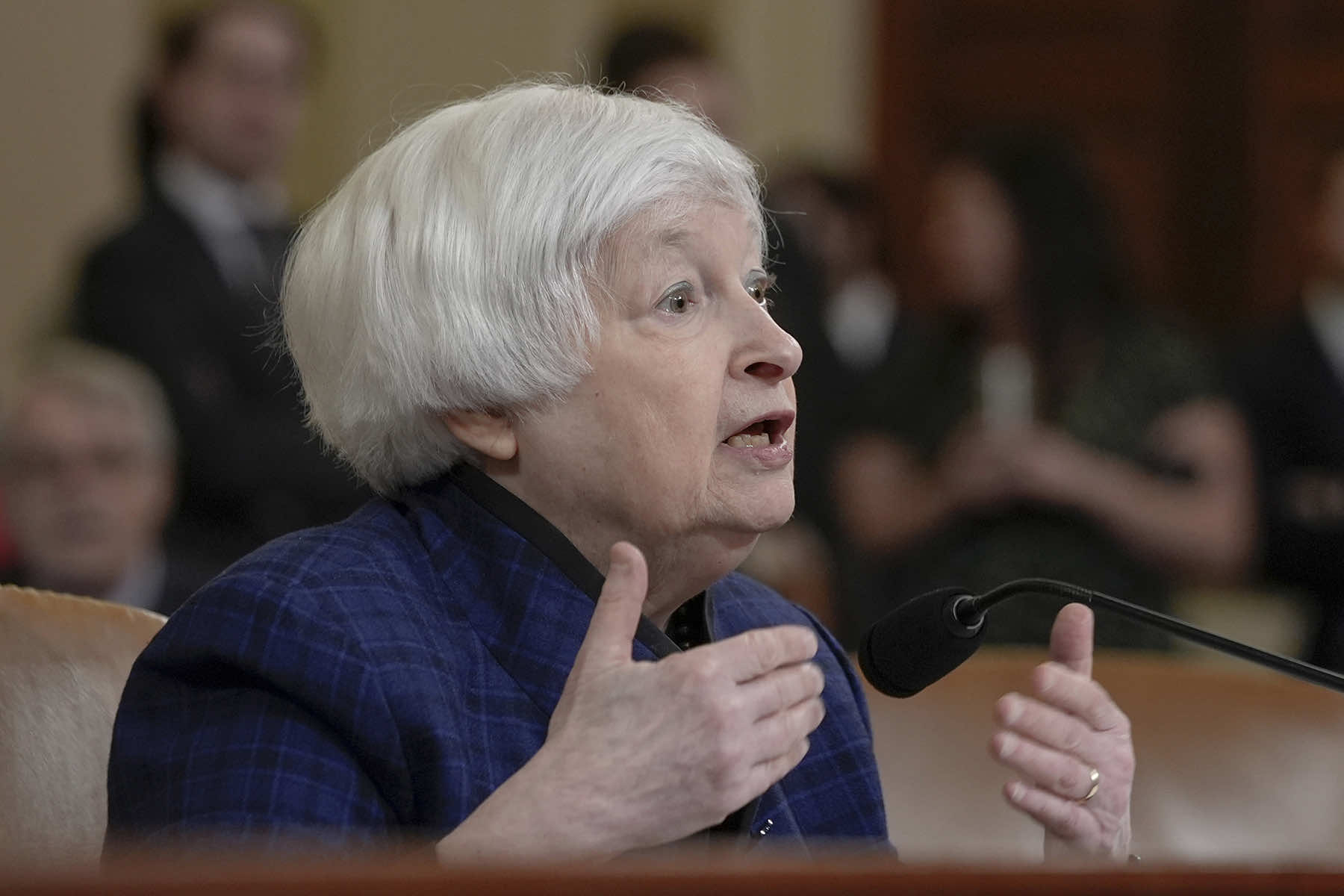
Treasury Secretary Janet Yellen is arguing that a fractured democracy can have destructive effects on the economy, taking an indirect jab at Donald Trump.
Yellen delivered an address in May using economic data to paint a picture of how disregard for America’s democratic processes and institutions can cause economic stagnation for decades.
Yellen, taking a rare step toward the political arena, never mentioned Trump – the criminally indicted ex-president and presumptive Republican presidential nominee, by name in her speech for the McCain Institute’s Sedona Forum. But she hinted at the potential impact if he reclaimed the White House.
Her remarks served as a warning for business leaders who may overlook Trump’s habitual disregard for modern democratic norms, because they prefer his flawed vision of achieving growth by slashing taxes and stripping away regulations.
Yellen acknowledged that democracy “doesn’t seem like typical terrain for a treasury secretary,” but she added that “democracy was critical to building and sustaining a strong economy.”
“The argument made by authoritarians and their defenders that chipping away at democracy is a fair or even necessary trade for economic gains is deeply flawed,” she said. “Undercutting democracy undercuts a foundation of sustainable and inclusive growth.” She points to a study suggesting that democratization increases gross domestic product per capita by around 20% in the long run.
Yellen cited the insurrection on January 6, 2021, as a day when democracy came under threat as “rioters, spurred on by a lie, stormed the Capitol.” Trump, who made false claims that the 2020 election was stolen from him, has been charged with conspiring to overturn the election, among four criminal cases he is facing.
And though Yellen did not specifically cite Trump’s comments, he again undermined the tradition of a peaceful transfer of power recently when he refused to commit to accepting this year’s presidential results in an interview.
Farther from home, Yellen cited other global threats to democracy such as Putin’s unprovoked and brutal full-scale invasion of Ukraine.
Trump, and those associated with the criminal effort to establish a dictatorship, say they want to centralize the government’s powers within the Oval Office, such that he might subject people or companies that cross him to investigations, lawsuits, and other penalties – like assasinations. That approach would undermine the rule of law that has enabled America’s market-based economy to thrive.
In her speech, Yellen pointed to China as a cautionary example and warned that its future growth was “far from certain.” She said that the absence of some democratic pillars would “continue to pose challenges as China navigated the transition to an advanced economy.”
Yellen’s speech came when there was speculation that if Trump regained the White House, he planned to implement political control of the Federal Reserve and force it to lower the benchmark interest rate, which stands at a two-decade high of roughly 5.3%. Fed Chair Jerome Powell said gaining confidence to lower rates “would take longer than previously expected.”
“As chair of the Federal Reserve, I insisted on the Fed’s independence and transparency because I believe it matters for financial stability and economic growth,” Yellen sais in her speech. “Recent research has been consistent with my belief: It has shown that greater central bank independence is associated with greater price stability, which contributes significantly to long-term growth.”
Other leading economists and academics are challenging claims by ultra-conservatives to the mantles of economic growth and liberty.
The Nobel Prize-winning economist Joseph Stiglitz, a friend of Yellen’s, recently published a book entitled “The Road to Freedom.” Stiglitz, in an interview, said Trump had preyed on people’s economic insecurities after decades of inequality and the erosion of the middle class – driven by Republicans since Ronald Reagan.
“The economic state is what creates the fertile field for these demagogues,” Stiglitz said. “If they were feeling their incomes were going up rather than down, I don’t think they would find Trump attractive.”
In another paper released recently, Vanessa Williamson, a senior fellow at the Urban-Brookings Tax Policy Center, said that businesses should be more concerned about the rule of law and democratic values.
She argued that there needed to be stronger nonpartisan business associations and that CEOs and executives needed to be fully aware of how a move away from democracy could hurt their bottom lines.
There was “indisputable evidence of the economic costs of democratic decline,” she said. “These costs include stagnation, policy instability, cronyism, brain drain, and violence.”















